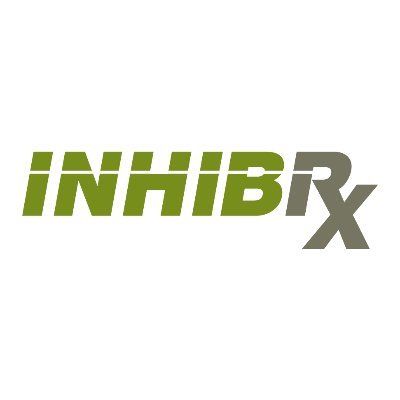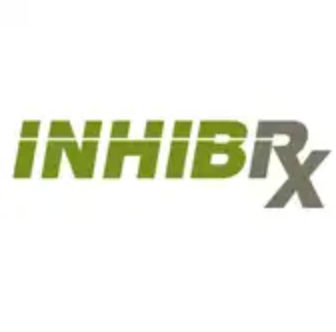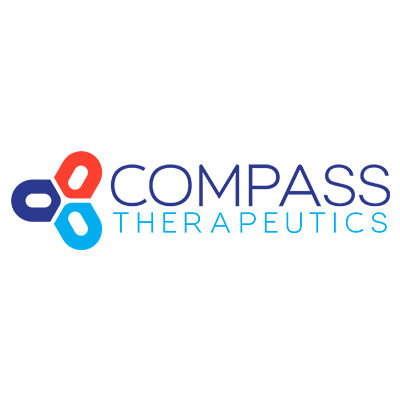预约演示
更新于:2025-08-29

Elpiscience Biopharma Ltd.
更新于:2025-08-29
概览
标签
肿瘤
消化系统疾病
免疫系统疾病
抗体
单克隆抗体
双特异性抗体
疾病领域得分
一眼洞穿机构专注的疾病领域
暂无数据
技术平台
公司药物应用最多的技术
暂无数据
靶点
公司最常开发的靶点
暂无数据
| 排名前五的药物类型 | 数量 |
|---|---|
| 双特异性抗体 | 4 |
| 单克隆抗体 | 3 |
| 抗体融合蛋白 | 2 |
| 重组蛋白 | 1 |
| 抗体 | 1 |
关联
12
项与 科望(上海)生物医药科技有限公司 相关的药物靶点 |
作用机制 OX40激动剂 |
在研适应症 |
非在研适应症- |
最高研发阶段临床2/3期 |
首次获批国家/地区- |
首次获批日期- |
作用机制 DLL4抑制剂 [+1] |
原研机构 |
最高研发阶段临床2/3期 |
首次获批国家/地区- |
首次获批日期- |
作用机制 CD39抑制剂 [+1] |
在研机构 |
原研机构 |
非在研适应症- |
最高研发阶段临床2期 |
首次获批国家/地区- |
首次获批日期- |
7
项与 科望(上海)生物医药科技有限公司 相关的临床试验NCT06007482
An Open-Label, Multicenter, First-in-Human, Phase 1 Study of ES009 in Subjects With Locally Advanced or Metastatic Solid Tumors
The goal of this clinical trial is to evaluate the safety, tolerability, pharmacokinetics, pharmacodynamics, and preliminary clinical activity of ES009 administered intravenously to subjects with advanced solid tumors.
开始日期2023-09-26 |
申办/合作机构 |
NCT05381935
An Open-Label, Multicenter, First-in-Human, Dose Escalation and Expansion, Phase 1 Study of ES014 in Subjects With Locally Advanced or Metastatic Solid Tumors
The purpose of this first-in-human, open-label, multicenter, non-randomized study designed to determine the maximum tolerated dose (MTD)/maximum administered dose (MAD), optimal biological dose (OBD), and recommended phase 2 dose (RP2D) of ES014 by evaluating the safety, tolerability, PK, pharmacodynamics, and preliminary clinical activity of ES014 administered intravenously to subjects with advanced solid tumors.
开始日期2023-04-21 |
申办/合作机构 |
NCT05075564
An Open-Label, Multicenter, First-in-Human, Dose-Escalation, Phase 1 Study of ES002023 in Patients With Locally Advanced or Metastatic Solid Tumors
The purpose of this first-in-human, open-label, multicenter, non-randomized study is to investigate the safety, tolerability, pharmacokinetics (PK), pharmacodynamics, and preliminary clinical activity of ES002023 in patients with advanced solid tumors that are relapsed or refractory to standard therapies.
开始日期2021-12-23 |
申办/合作机构 |
100 项与 科望(上海)生物医药科技有限公司 相关的临床结果
登录后查看更多信息
0 项与 科望(上海)生物医药科技有限公司 相关的专利(医药)
登录后查看更多信息
2
项与 科望(上海)生物医药科技有限公司 相关的文献(医药)2025-01-01·PROTEIN EXPRESSION AND PURIFICATION
Partition coefficient screening – An effective approach for finding the best conditions for byproduct removal as demonstrated by a bispecific antibody purification case
Article
作者: Chen, Wei ; Wang, Peter K ; Wan, Yan ; Zhang, Ting ; Wang, Peter K. ; Liao, Chien-Chun ; Li, Yifeng
In recombinant protein purification, differences in isoelectric point (pI)/surface charge and hydrophobicity between the product and byproducts generally form the basis for separation. For bispecific antibodies (bsAbs), in many cases the physicochemical difference between product and byproducts is subtle, making byproduct removal considerably challenging. In a previous report, with a bsAb case study, we showed that partition coefficient (Kp) screening for the product and byproducts under various conditions facilitated finding conditions under which effective separation of two difficult-to-remove byproducts was achieved by anion exchange (AEX) chromatography. In the current work, as a follow-up study, we demonstrated that the same approach enabled identification of conditions allowing equally good byproduct removal by mixed-mode chromatography with remarkably improved yield. Results from the current and previous studies proved that separation factor determination based on Kp screening for product and byproduct is an effective approach for finding conditions enabling efficient and maximum byproduct removal, especially in challenging cases.
2023-10-01·Protein expression and purification
Resin and loading condition screening for effective and robust byproducts removal by anion exchange chromatography: A case study.
Article
作者: Chen, Wei ; Wan, Yan ; Wang, Peter K ; Li, Yifeng ; Liao, Chien-Chun
In downstream processing of protein therapeutics, ion exchange (IEX) chromatography is a powerful tool for removing byproducts whose isoelectric point (pI) is appreciably different from that of the product. Although in theory for a given case cation exchange (CEX) and anion exchange (AEX) chromatography should be equally effective for separation, in reality they may show different effectiveness. In the current work, with a case study, we demonstrated that AEX is more effective than CEX chromatography at removing the associated byproducts. In addition, we screened AEX resins and loading conditions to achieve best separation. Finally, we demonstrated that effective separation was achieved with the selected resin/condition, and chromatography performance was comparable between runs conducted at low and high load densities, suggesting that the developed process was relatively robust. The procedure described in this work can be used as a general approach for selecting resin and loading condition that allow for effective and robust removal of byproduct that binds weaker than the product to the selected type of column.
1,911
项与 科望(上海)生物医药科技有限公司 相关的新闻(医药)2025-08-28
·医药笔记
▎Armstrong
2025年8月27日,辉瑞在Clinicaltrials.gov网站上注册了SGN-PDL1V治疗PD-L1阳性非小细胞肺癌的三期临床试验。
该三期临床计划入组680例晚期非小细胞肺癌患者,预计2028年初步完成。
SGN-PDL1V为一款PD-L1 ADC,全新作用机制意味着可以用于PD-1后线,同时也可以用于AGA如EGFR突变、ALK突变等人群,对着这部分患者同样可以用于靶向治疗后线。
辉瑞PD-L1 ADC今年启动两项关键三期临床,针对头颈癌一线治疗、非小细胞肺癌二线及以后治疗。这也标志着PD-L1 ADC进入最后的POC阶段。
根据辉瑞去年9月公布的一期临床数据,SGN-PDL1V治疗的55位患者,ORR为27.3%,其中12.7%已确认,mDOR为7.9个月。安全性方面,3级及以上副作用发生率为30.9%,因副作用停止治疗比例为14.5%。
总结
ADC已经成为肿瘤治疗的重要方向之一,作用机制上可以看做是靶向的化疗,与PD-(L)1的联用也已经不断取得临床突破。PD-L1靶点有其独特的应用潜力,既做为免疫检验点,又可做为ADC的TAA。从这个角度来看PD-L1 ADC可以拥有双重作用机制,即靶向的毒素杀伤和解除免疫抑制,因此可以覆盖多个瘤种。
国内方面,复宏汉霖的PD-L1 ADC新药HLX43临床进展迅速,已经启动多项二期临床试验。HLX43采用宜联生物TMALIN®技术开发。根据此前公开的临床前研究数据,HLX43通过充分的差异化设计,表现出优异的旁观者效应,体内试验表现出优异的抗肿瘤活性。与此同时,HLX43对PD-L1阳性人类抗原呈递细胞无免疫毒性,从而保证了良好的安全性。
Armstrong技术全梳理系列
GPRC5D靶点全梳理;
CD40靶点全梳理;
CD47靶点全梳理;
补体靶向药物技术全梳理;
补体药物:眼科治疗的重要方向;
Claudin 6靶点全梳理;
Claudin 18.2靶点全梳理;
靶点冷暖,行业自知;
中国大分子新药研发格局;
被炮轰的“me too”;
佐剂百年史;
胰岛素百年传奇;
CUSBEA:风雨四十载;
中国新药研发的焦虑;
中国生物医药企业的研发竞争;
中国双抗竞争格局;
中国ADC竞争格局;
中国双抗技术全梳理;
中国ADC技术全梳理;
Ambrx技术全梳理;
Vir Biotech技术全梳理;
Immune-Onc技术全梳理;
亘喜生物技术全梳理;
康哲药业技术全梳理;
科济药业技术全梳理;
恺佧生物技术全梳理;
同宜医药技术全梳理;
百奥赛图技术全梳理;
腾盛博药技术全梳理;
创胜集团技术全梳理;
永泰生物技术全梳理;
中国抗体技术全梳理;
德琪医药技术全梳理;
德琪医药技术全梳理2.0;
和铂医药技术全梳理;
荣昌生物技术全梳理;
再鼎医药技术全梳理;
药明生物技术全梳理;
恒瑞医药技术全梳理;
豪森药业技术全梳理;
正大天晴技术全梳理;
吉凯基因技术全梳理;
基石药业技术全梳理;
百济神州技术全梳理;
百济神州技术全梳理第2版;
信达生物技术全梳理;
信达生物技术全梳理第2版;
中山康方技术全梳理;
复宏汉霖技术全梳理;
先声药业技术全梳理;
君实生物技术全梳理;
嘉和生物技术全梳理;
志道生物技术全梳理;
道尔生物技术全梳理;
尚健生物技术全梳理;
康宁杰瑞技术全梳理;
科望医药技术全梳理;
岸迈生物技术全梳理;
礼进生物技术全梳理;
康桥资本技术全梳理;
余国良的抗体药布局;
荃信生物技术全梳理;
安源医药技术全梳理;
三生国健技术全梳理;
仁会生物技术全梳理;
乐普生物技术全梳理;
同润生物技术全梳理;
宜明昂科技术全梳理;
派格生物技术全梳理;
迈威生物技术全梳理;
Momenta技术全梳理;
NGM技术全梳理;
普米斯生物技术全梳理;
普米斯生物技术全梳理2.0;
三叶草生物技术全梳理;
贝达药业抗体药全梳理;
泽璟制药抗体药全梳理;
恒瑞医药抗体药全梳理;
齐鲁制药抗体药全梳理;
石药集团抗体药全梳理;
豪森药业抗体药全梳理;
华海药业抗体药全梳理;
科伦药业抗体药全梳理;
百奥泰技术全梳理;
凡恩世技术全梳理。
临床3期抗体药物偶联物临床2期临床1期临床失败
2025-08-27
·医药笔记
▎Armstrong
2025年8月26日,映恩生物在Clinicaltrials.gov网站上注册了DB-1317治疗晚期实体瘤的美国一期临床试验。
该一期临床计划入组183例晚期实体瘤患者,1a期部分大约5个剂量组,1b期部分在1a期确定MTD或MAD的基础上,开展3个扩展队列,每个队列针对特定的瘤种。
DB-1317为映恩生物自主研发的ADAM9 ADC新药,也是映恩生物第9款推进到临床极端的ADC新药。
总结
艾伯维与Macrogenics曾合作开发一款ADAM9 ADC,但在一期临床失败,Macrogenics又开发了新一代ADAM9 ADC新药MGC028,采用糖定点偶联技术,有望探索非小细胞肺癌、结直肠癌、胰腺癌、三阴乳腺癌、胃癌等多个瘤种。
Armstrong技术全梳理系列
GPRC5D靶点全梳理;
CD40靶点全梳理;
CD47靶点全梳理;
补体靶向药物技术全梳理;
补体药物:眼科治疗的重要方向;
Claudin 6靶点全梳理;
Claudin 18.2靶点全梳理;
靶点冷暖,行业自知;
中国大分子新药研发格局;
被炮轰的“me too”;
佐剂百年史;
胰岛素百年传奇;
CUSBEA:风雨四十载;
中国新药研发的焦虑;
中国生物医药企业的研发竞争;
中国双抗竞争格局;
中国ADC竞争格局;
中国双抗技术全梳理;
中国ADC技术全梳理;
Ambrx技术全梳理;
Vir Biotech技术全梳理;
Immune-Onc技术全梳理;
亘喜生物技术全梳理;
康哲药业技术全梳理;
科济药业技术全梳理;
恺佧生物技术全梳理;
同宜医药技术全梳理;
百奥赛图技术全梳理;
腾盛博药技术全梳理;
创胜集团技术全梳理;
永泰生物技术全梳理;
中国抗体技术全梳理;
德琪医药技术全梳理;
德琪医药技术全梳理2.0;
和铂医药技术全梳理;
荣昌生物技术全梳理;
再鼎医药技术全梳理;
药明生物技术全梳理;
恒瑞医药技术全梳理;
豪森药业技术全梳理;
正大天晴技术全梳理;
吉凯基因技术全梳理;
基石药业技术全梳理;
百济神州技术全梳理;
百济神州技术全梳理第2版;
信达生物技术全梳理;
信达生物技术全梳理第2版;
中山康方技术全梳理;
复宏汉霖技术全梳理;
先声药业技术全梳理;
君实生物技术全梳理;
嘉和生物技术全梳理;
志道生物技术全梳理;
道尔生物技术全梳理;
尚健生物技术全梳理;
康宁杰瑞技术全梳理;
科望医药技术全梳理;
岸迈生物技术全梳理;
礼进生物技术全梳理;
康桥资本技术全梳理;
余国良的抗体药布局;
荃信生物技术全梳理;
安源医药技术全梳理;
三生国健技术全梳理;
仁会生物技术全梳理;
乐普生物技术全梳理;
同润生物技术全梳理;
宜明昂科技术全梳理;
派格生物技术全梳理;
迈威生物技术全梳理;
Momenta技术全梳理;
NGM技术全梳理;
普米斯生物技术全梳理;
普米斯生物技术全梳理2.0;
三叶草生物技术全梳理;
贝达药业抗体药全梳理;
泽璟制药抗体药全梳理;
恒瑞医药抗体药全梳理;
齐鲁制药抗体药全梳理;
石药集团抗体药全梳理;
豪森药业抗体药全梳理;
华海药业抗体药全梳理;
科伦药业抗体药全梳理;
百奥泰技术全梳理;
凡恩世技术全梳理。
抗体药物偶联物临床1期
2025-08-27
·医药笔记
▎Armstrong
2025年8月22日,诺诚健华在Clinicaltrials.gov网站上注册了ICP-B794治疗晚期实体瘤的一期临床试验。
该一期临床计划入组410例晚期实体瘤患者,预计2029年6月初步完成。
诺诚健华搭建了差异化的ADC技术平台,采用亲水性的Linker和稳定接头,Payload可以在肿瘤微环境特异性释放,而在血浆中可以快速清除,最大限度的平衡了安全性和有效性。
ICP-B794为一款靶向B7H3的ADC新药,基于上述技术平台构建,在临床前研究中表现出优于竞品的强大抗肿瘤活性,安全窗口超过200倍。
总结
诺诚健华在肿瘤领域以小分子、抗体、ADC为主,自免领域从小分子扩展到环肽、分子胶等。以临床为焦点的策略驱动药物形式的扩展布局,并能持续开发更具优势的差异化产品,具有明确的国际化潜力。商业化上扭亏为盈以及充足的现金储备,可以支撑诺诚健华在国际化征程上进一步加速。
Armstrong技术全梳理系列
GPRC5D靶点全梳理;
CD40靶点全梳理;
CD47靶点全梳理;
补体靶向药物技术全梳理;
补体药物:眼科治疗的重要方向;
Claudin 6靶点全梳理;
Claudin 18.2靶点全梳理;
靶点冷暖,行业自知;
中国大分子新药研发格局;
被炮轰的“me too”;
佐剂百年史;
胰岛素百年传奇;
CUSBEA:风雨四十载;
中国新药研发的焦虑;
中国生物医药企业的研发竞争;
中国双抗竞争格局;
中国ADC竞争格局;
中国双抗技术全梳理;
中国ADC技术全梳理;
Ambrx技术全梳理;
Vir Biotech技术全梳理;
Immune-Onc技术全梳理;
亘喜生物技术全梳理;
康哲药业技术全梳理;
科济药业技术全梳理;
恺佧生物技术全梳理;
同宜医药技术全梳理;
百奥赛图技术全梳理;
腾盛博药技术全梳理;
创胜集团技术全梳理;
永泰生物技术全梳理;
中国抗体技术全梳理;
德琪医药技术全梳理;
德琪医药技术全梳理2.0;
和铂医药技术全梳理;
荣昌生物技术全梳理;
再鼎医药技术全梳理;
药明生物技术全梳理;
恒瑞医药技术全梳理;
豪森药业技术全梳理;
正大天晴技术全梳理;
吉凯基因技术全梳理;
基石药业技术全梳理;
百济神州技术全梳理;
百济神州技术全梳理第2版;
信达生物技术全梳理;
信达生物技术全梳理第2版;
中山康方技术全梳理;
复宏汉霖技术全梳理;
先声药业技术全梳理;
君实生物技术全梳理;
嘉和生物技术全梳理;
志道生物技术全梳理;
道尔生物技术全梳理;
尚健生物技术全梳理;
康宁杰瑞技术全梳理;
科望医药技术全梳理;
岸迈生物技术全梳理;
礼进生物技术全梳理;
康桥资本技术全梳理;
余国良的抗体药布局;
荃信生物技术全梳理;
安源医药技术全梳理;
三生国健技术全梳理;
仁会生物技术全梳理;
乐普生物技术全梳理;
同润生物技术全梳理;
宜明昂科技术全梳理;
派格生物技术全梳理;
迈威生物技术全梳理;
Momenta技术全梳理;
NGM技术全梳理;
普米斯生物技术全梳理;
普米斯生物技术全梳理2.0;
三叶草生物技术全梳理;
贝达药业抗体药全梳理;
泽璟制药抗体药全梳理;
恒瑞医药抗体药全梳理;
齐鲁制药抗体药全梳理;
石药集团抗体药全梳理;
豪森药业抗体药全梳理;
华海药业抗体药全梳理;
科伦药业抗体药全梳理;
百奥泰技术全梳理;
凡恩世技术全梳理。
抗体药物偶联物临床1期
100 项与 科望(上海)生物医药科技有限公司 相关的药物交易
登录后查看更多信息
100 项与 科望(上海)生物医药科技有限公司 相关的转化医学
登录后查看更多信息
组织架构
使用我们的机构树数据加速您的研究。
登录
或

管线布局
2025年11月04日管线快照
管线布局中药物为当前组织机构及其子机构作为药物机构进行统计,早期临床1期并入临床1期,临床1/2期并入临床2期,临床2/3期并入临床3期
药物发现
2
6
临床前
临床1期
2
2
临床2期
其他
14
登录后查看更多信息
当前项目
| 药物(靶点) | 适应症 | 全球最高研发状态 |
|---|---|---|
Tovecimig ( DLL4 x VEGF-A ) | 结直肠癌 更多 | 临床1/2期 |
INBRX-106 ( OX40 ) | 晚期恶性实体瘤 更多 | 临床1期 |
ES015-IL2v ( IL-2 x NKG2A ) | 肿瘤 更多 | 临床前 |
ES-019 ( PDL1 x SIRPα ) | 实体瘤 更多 | 临床前 |
ES-301 | 自身免疫性疾病 更多 | 临床前 |
登录后查看更多信息
药物交易
使用我们的药物交易数据加速您的研究。
登录
或

转化医学
使用我们的转化医学数据加速您的研究。
登录
或

营收
使用 Synapse 探索超过 36 万个组织的财务状况。
登录
或

科研基金(NIH)
访问超过 200 万项资助和基金信息,以提升您的研究之旅。
登录
或

投资
深入了解从初创企业到成熟企业的最新公司投资动态。
登录
或

融资
发掘融资趋势以验证和推进您的投资机会。
登录
或

生物医药百科问答
全新生物医药AI Agent 覆盖科研全链路,让突破性发现快人一步
立即开始免费试用!
智慧芽新药情报库是智慧芽专为生命科学人士构建的基于AI的创新药情报平台,助您全方位提升您的研发与决策效率。
立即开始数据试用!
智慧芽新药库数据也通过智慧芽数据服务平台,以API或者数据包形式对外开放,助您更加充分利用智慧芽新药情报信息。
生物序列数据库
生物药研发创新
免费使用
化学结构数据库
小分子化药研发创新
免费使用




